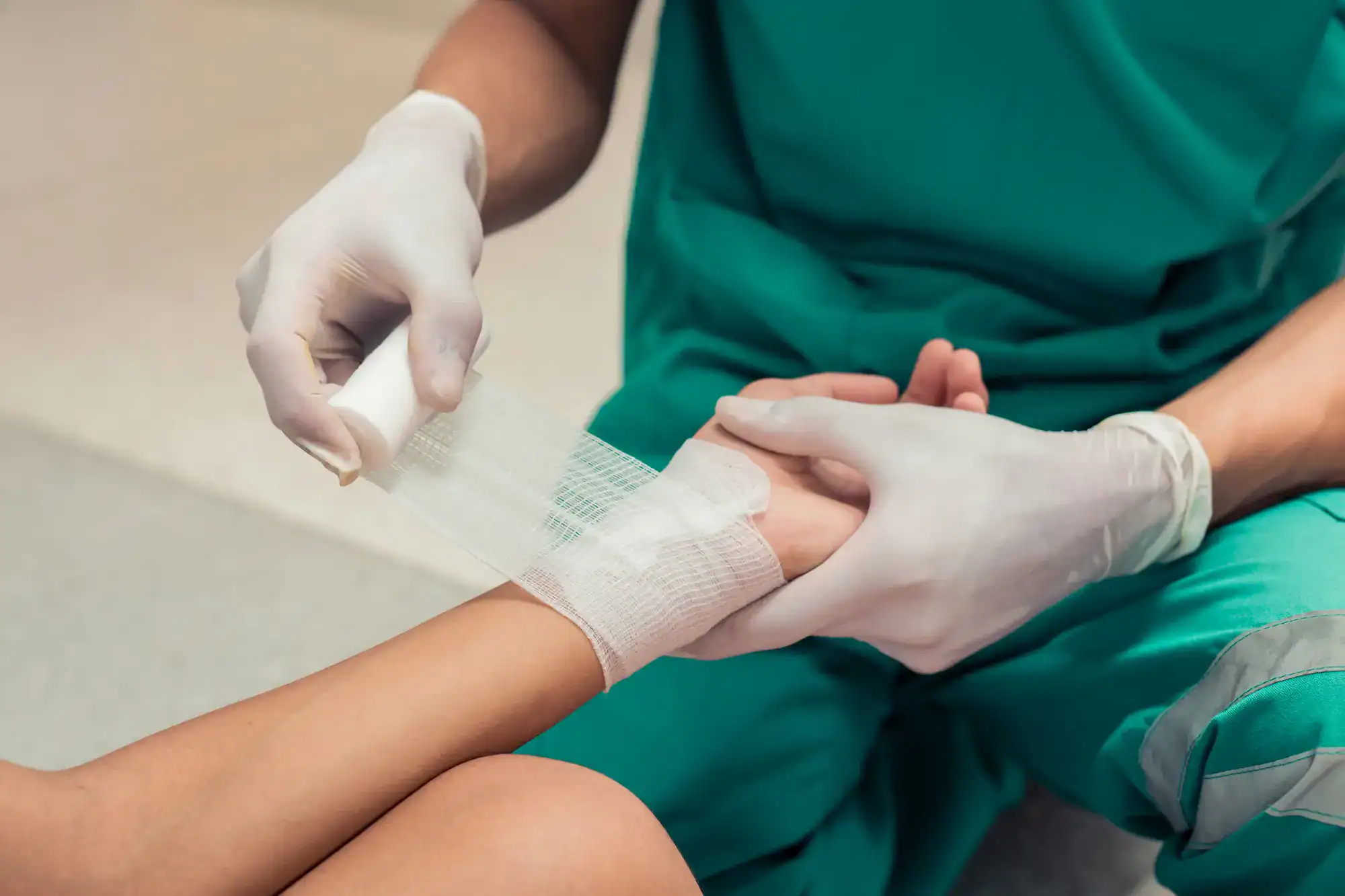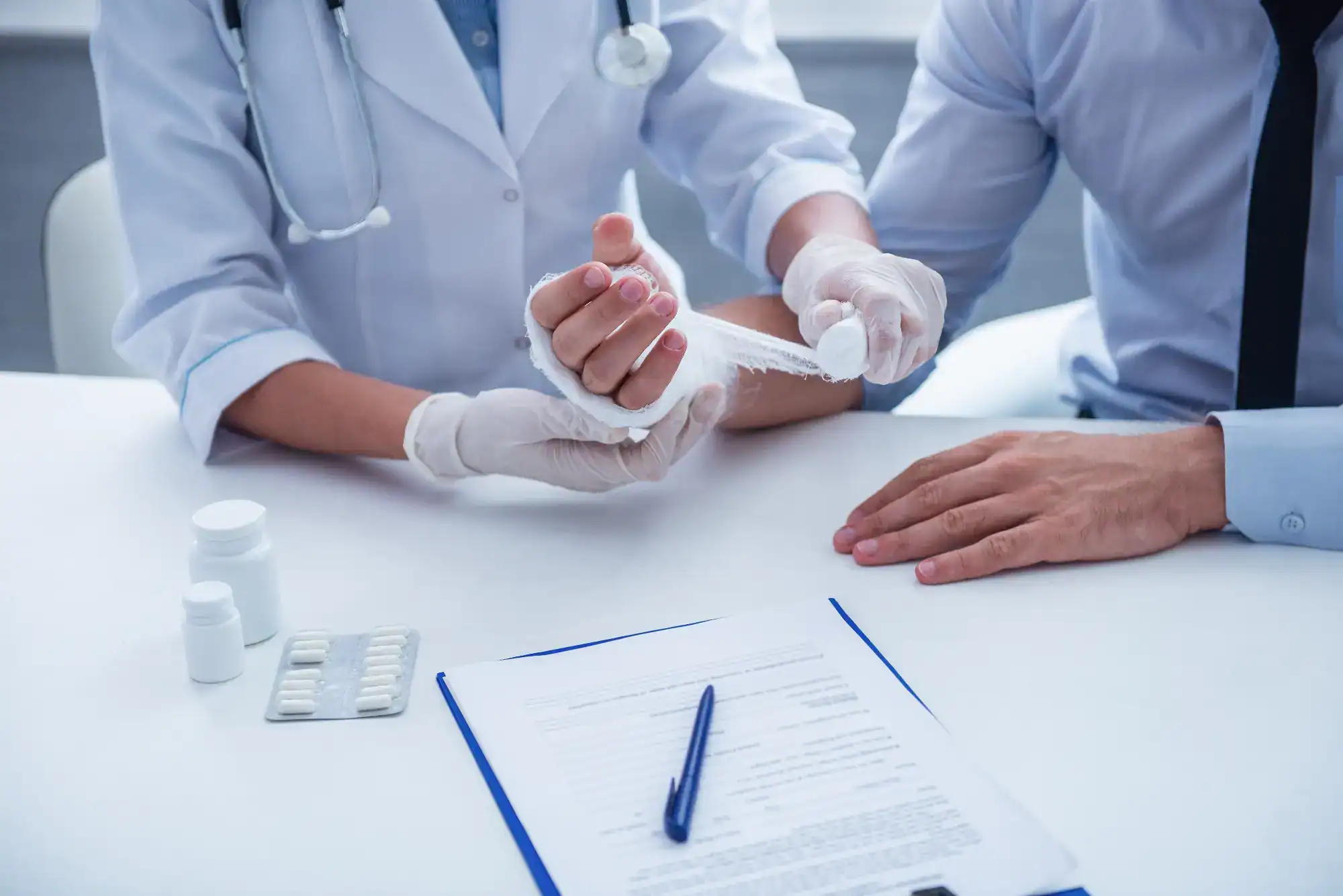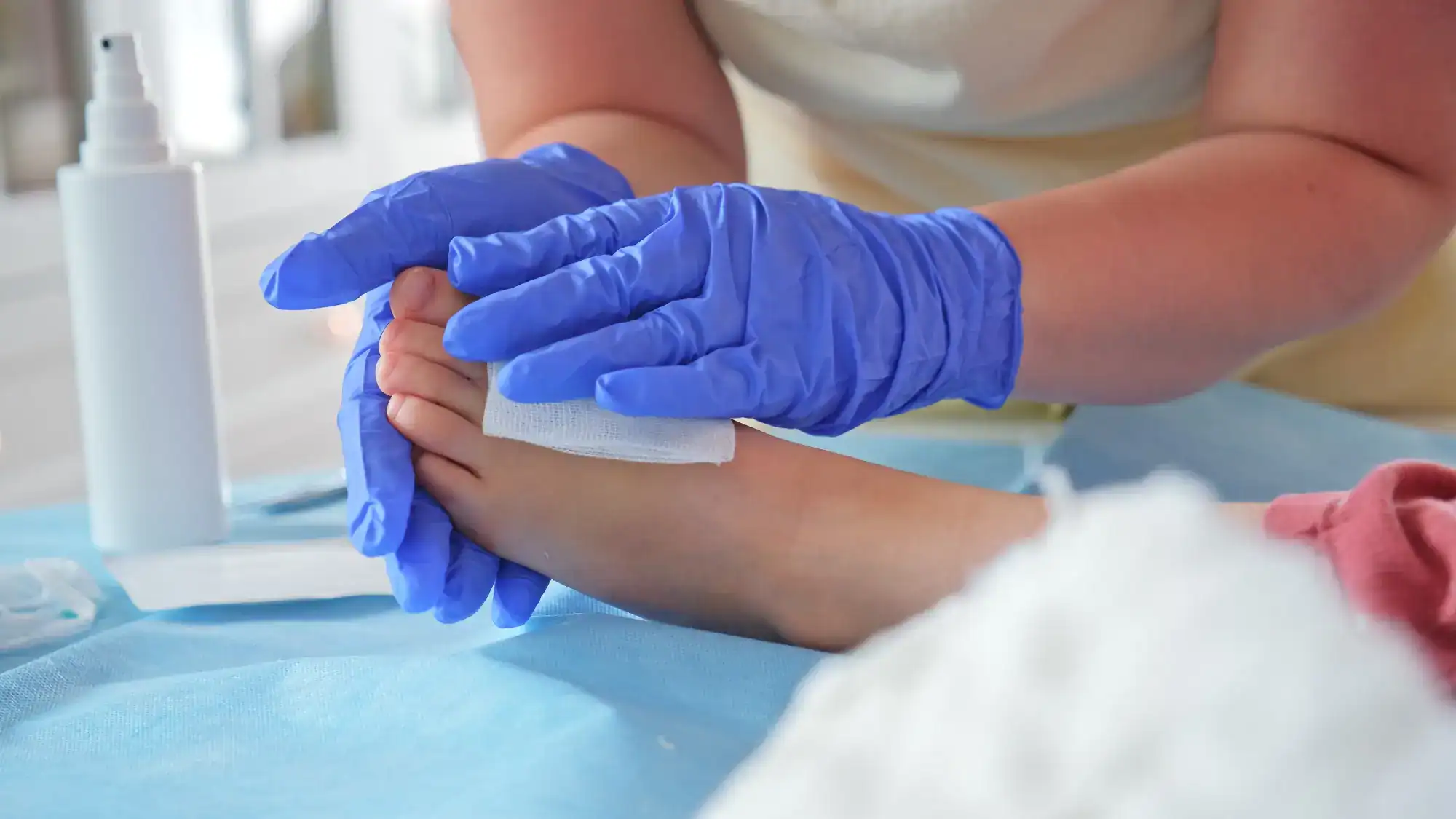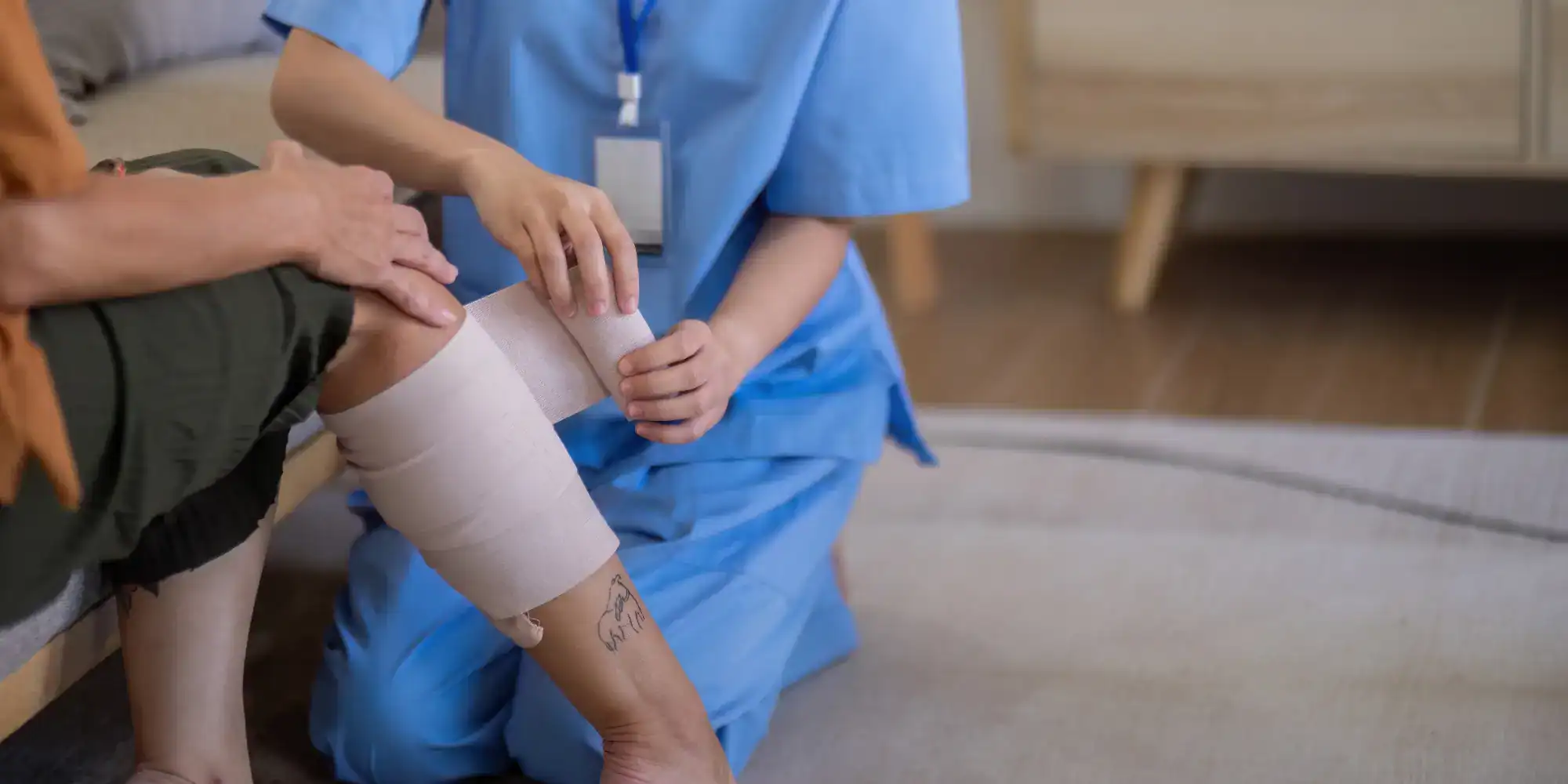Advanced wound treatments that work when others haven’t, right here in Peck.

See What Our Customers Think

You’ve tried everything. Bandages, creams, waiting it out. Nothing’s working, and you’re worried about what comes next.
Here’s what changes when your wound finally heals properly. You stop checking it every morning. You stop worrying about infection. You can wear your regular shoes again, walk without pain, and sleep through the night without throbbing keeping you awake.
That’s what happens when you get the right wound care. Not just basic treatment, but the kind of specialized care that addresses why your wound isn’t healing in the first place. The kind that uses advanced treatments designed specifically for diabetic wounds, circulation problems, and chronic conditions that make healing complicated.
We’ve been serving patients in Peck, FL with specialized wound care that goes beyond what you’ll find at a regular doctor’s office. We focus exclusively on wounds that need more than basic care.
Our team understands that every wound tells a story. Diabetes, circulation issues, previous surgeries, medications that slow healing. We don’t just treat the wound – we treat the whole picture.
You’re not just another patient here. You’re someone who deserves to heal properly, and we have the expertise to make that happen.

First, we do a complete wound assessment. Not just looking at what you can see, but understanding what’s preventing healing. Blood flow, infection, underlying conditions, medications. Everything that matters.
Then we create your treatment plan. This might include advanced wound dressings, specialized therapies, or treatments designed specifically for diabetic wound care. We explain exactly what we’re doing and why.
You’ll come in for regular monitoring. We track healing progress, adjust treatments as needed, and make sure you’re on the right path. Most importantly, we don’t just treat until it looks better – we treat until it’s completely healed and stays that way.

Ready to get started?
Complete wound evaluation using advanced diagnostic tools. We identify exactly what’s preventing your wound from healing, including circulation testing and infection assessment.
Specialized diabetic wound care for patients dealing with foot ulcers, slow-healing cuts, and circulation-related wounds. We understand how diabetes affects healing and use treatments designed specifically for these challenges.
Advanced wound treatments including specialized dressings, negative pressure therapy, and other modern techniques that aren’t available at regular clinics. Insurance typically covers these treatments when medically necessary.
Ongoing care coordination with your other doctors. We make sure everyone’s on the same page about your treatment, medications, and overall health management.
